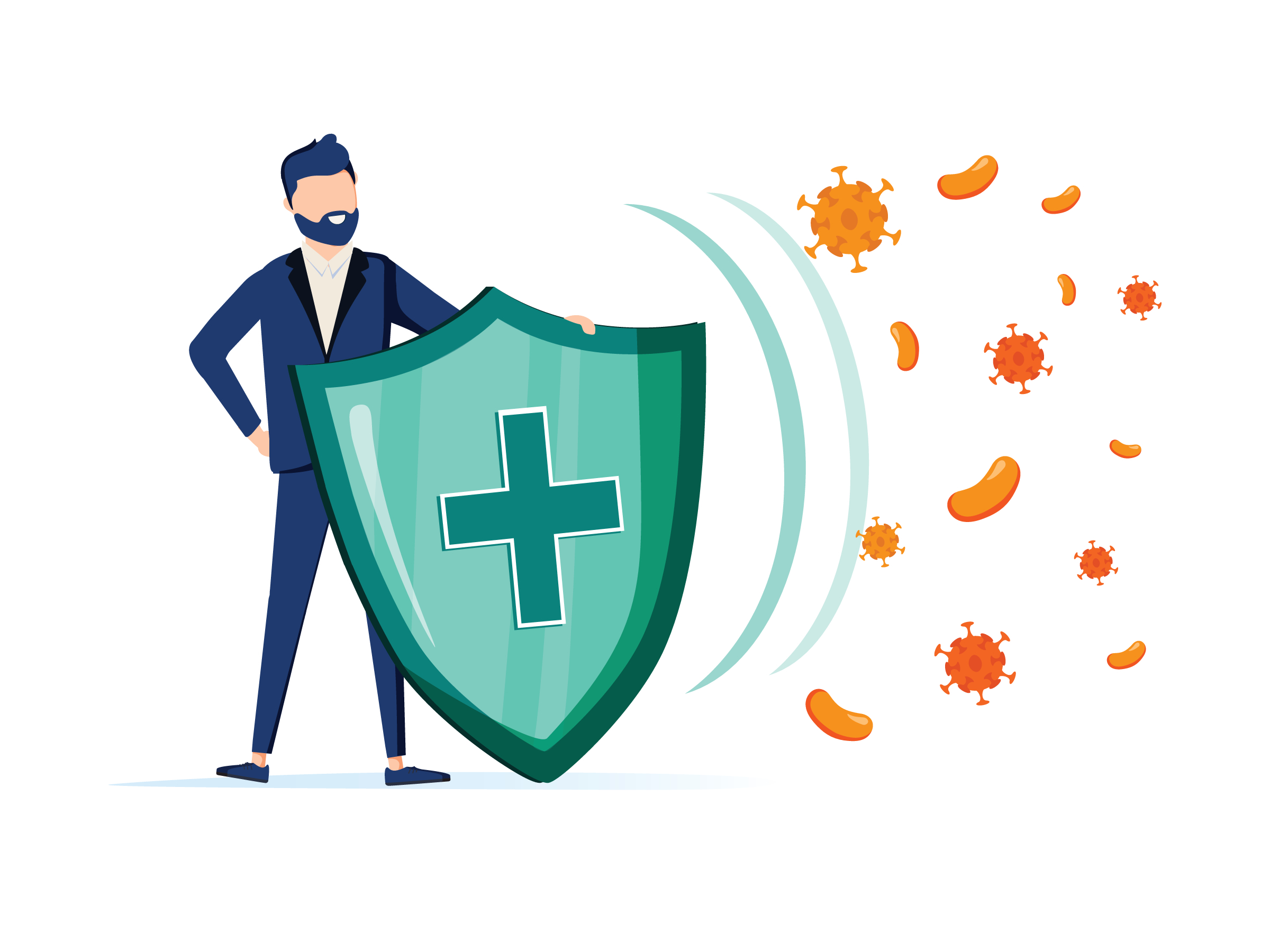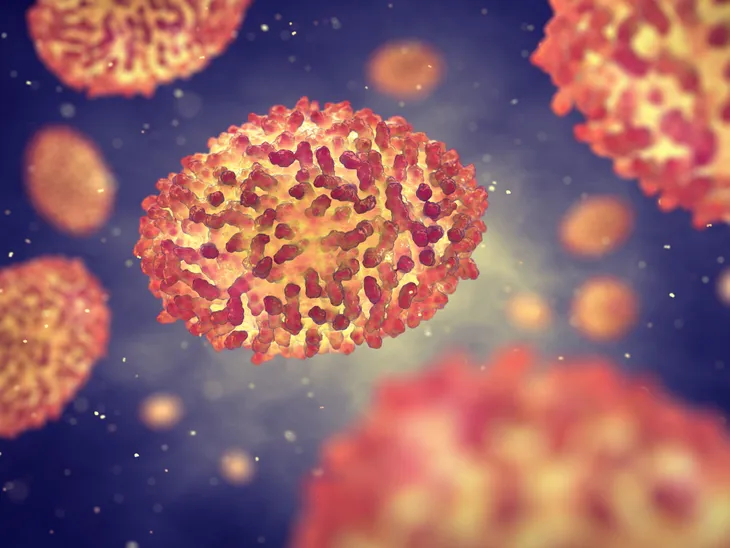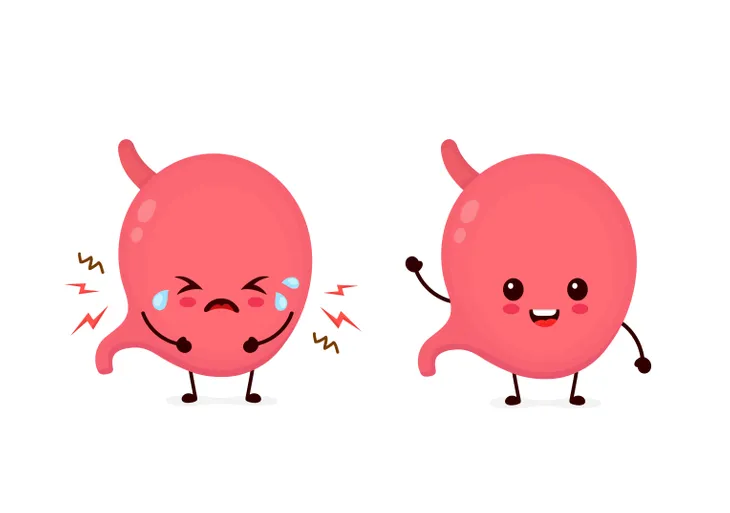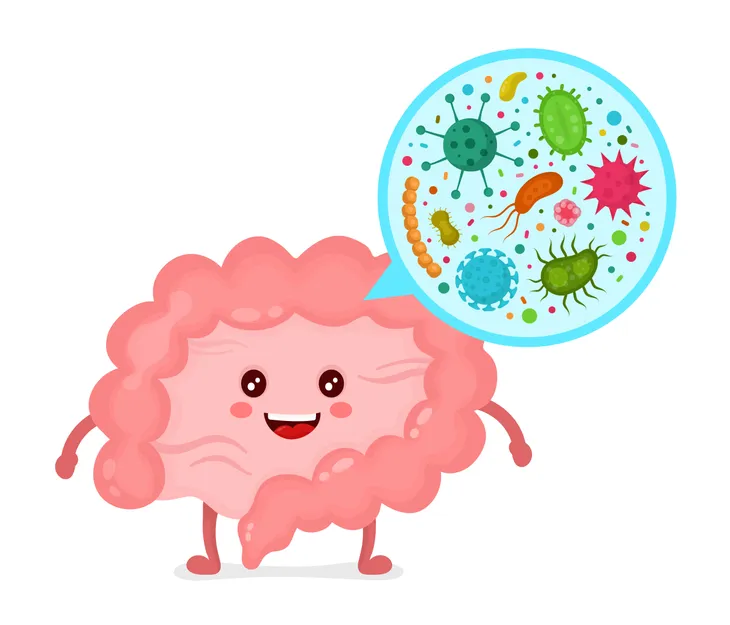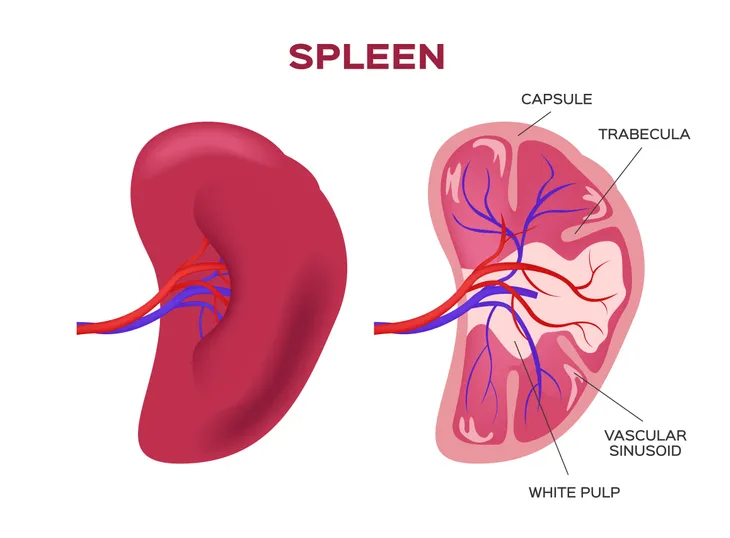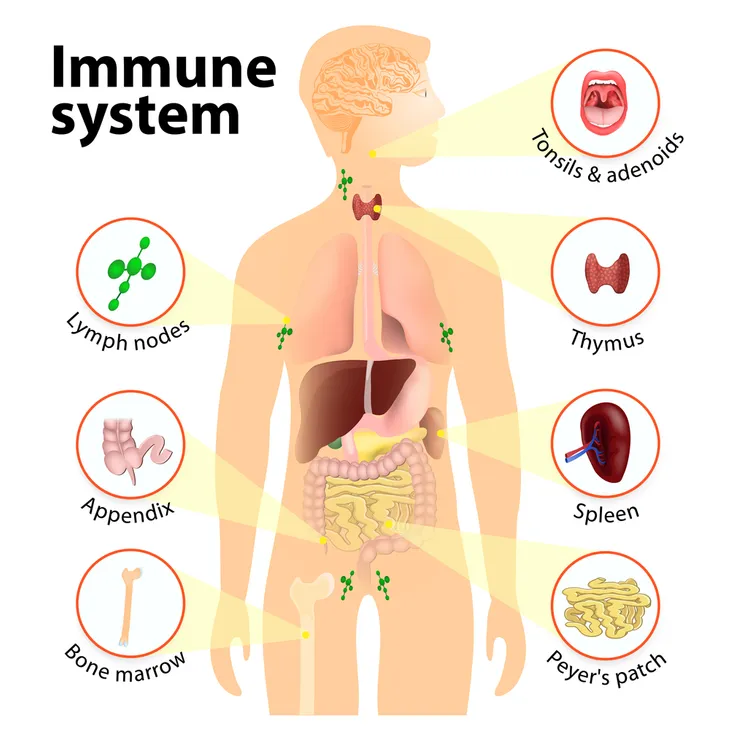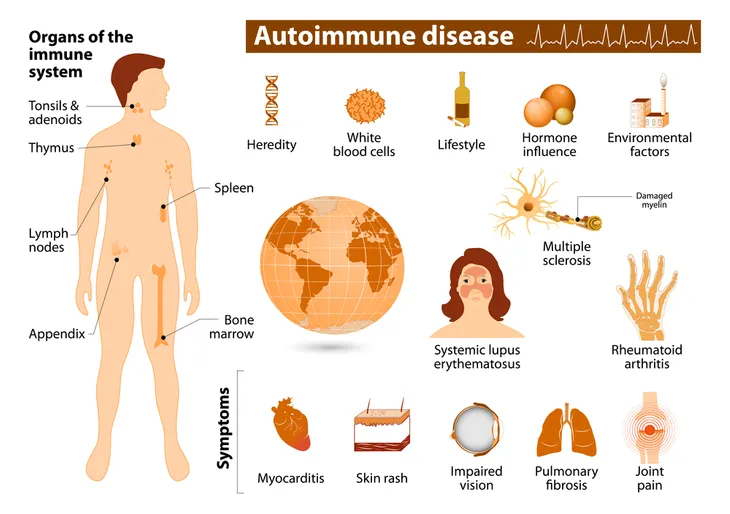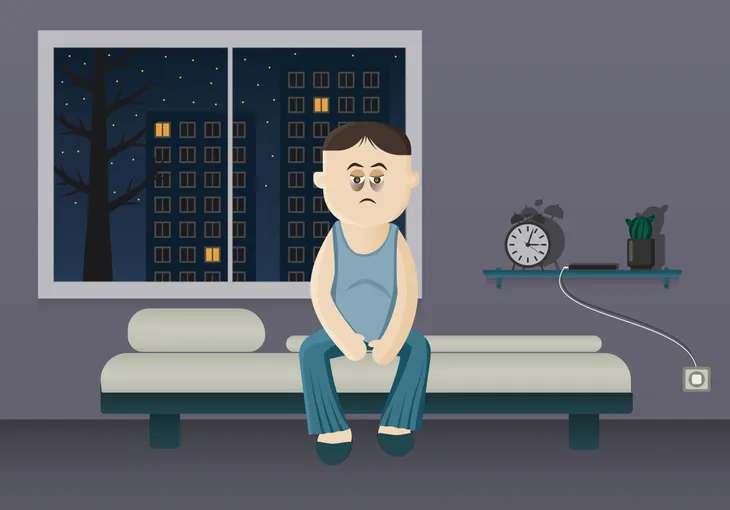“Stop right there!” If your immune system were a soldier, you could imagine it barking orders to foreign invading germs like a sergeant. However, how much do you know about this interconnected series of cells and tissues that serve as your body’s defense? The human immune system is exceedingly complex. Rather than an enclosed circuit, like your circulatory system, defender cells occupy every region of your body. Like ogres and onions, it has many layers, some of which overlap.
Immunology Goes Back a Long Way
Way back in 430 B.C., the ancient Greek city of Athens saw an epidemic of plague, which modern researchers chalk up to typhus and smallpox. Although as many as 100,000 people died, some survived. It didn’t take long for city officials to notice that those who recovered didn’t fall ill a second time, and they put them to work caring for those currently ailing.
Then, in the 10th century, Chinese medical practitioners began blowing dust from the scabs of dried smallpox into the noses of healthy individuals. These folks would later become sick, but with a milder form of the disease. This practice spread westward and formed the basis for future inoculation efforts.
Vitamins and Minerals Can Boost Function
Have you ever heard that you should take vitamin C or zinc supplements when you feel a cold coming? While it’s better to get such substances from foods such as cantaloupe, oranges and broccoli, the advice wasn’t off the mark. Eating foods high in these vitamins and minerals can give your immune system a substantial boost.
While researchers found that vitamin C supplementation can’t keep you from catching a cold, it can shorten its duration by one and a half days on average. Vitamin C also helps your body absorb non-heme iron — the kind found in plants — which makes it a boon for vegans who are prone to anemia.
Your Stomach Plays a Role
You probably think of colds and flu as things you catch through airborne particles. However, something that you eat can also make you sick. Your stomach serves as a primary line of defense against these germs.
How? Stomach acid kills many of the bacteria and parasites that you swallow. It destroys the nasties that your saliva doesn’t break down with its digestive enzymes.
Intestinal Bacteria Matter Significantly
Your intestines contain a ton of bacteria, and keeping the positive varieties in balance helps improve your immune system through a complex mechanism. In addition, your intestines also harbor immune cells. Your gut, therefore, must teach your immune system to differentiate between useful and harmful germs.
In healthy individuals, the immune system also prompts the growth of beneficial bacteria. Without these little critters, you experience symptoms like diarrhea and bloating.
Your Spleen Plays a Part — but You Can Live Without It
Your spleen is an organ that lies near your stomach on your left side. It’s a part of your immune system that acts as a filter for your blood. The organ recycles old red blood cells and harbors white blood cells and platelets in anticipation of illness or injury.
As vital a role as your spleen plays in your overall health, you can live without it. Splenic infarction occurs when blood is lost to part or all of this organ, causing tissue death. This condition typically occurs due to bloodborne infections or significant blunt force trauma, such as an automobile accident. Fascinatingly, many cases of splenic infarction lead to the diagnosis of new underlying diseases.
You Have Immune Cells in Every Bodily Organ
When you think of your circulatory system, it’s relatively simple to visualize — you have your heart, followed by your veins, arteries and capillaries. You can picture it like a roadmap. Trying to map your immune system would be more like trying to chart the trees in a forest. You have immune cells scattered throughout every organ and system in your body.
Your immune system comprises the following elements, as well as your spleen:
- White Blood Cells: These are also called leukocytes. They flow through your bloodstream seeking pathogens and attacking them to prevent disease.
- Antibodies: These are proteins produced by your blood in reaction to counteracting specific antigens. The antibody system enables vaccines to work by allowing your body exposure to milder versions of dangerous pathogens that don’t cause serious illnesses. When you receive the immunization, your body produces specific antibodies.
- Lymphatic System: Your lymphatic system is a network of tissues and organs that transports waste out of the body. The lymphatic fluid contains white blood cells. When you have a cold, and you start seeing your lymph nodes grow it’s letting you know they are working hard because of an infection.
- Complement System: Similar to your lymphatic system, the complement system does what the name implies — it helps. Specifically, it helps to clear microbes and damaged cells from your body.
- Bone Marrow: This part of your body produces your red and white blood cells.
- Thymus: Think of your thymus as an elite boarding school. It takes immature T cells, an essential type of white blood cell, and matures them into functional adult versions that only attack foreign pathogens, not bodily tissues. Only the top ones “graduate” up to your medulla, where they meet with your body’s antigens to produce antibodies.
It Can Go Haywire and Attack Healthy Tissue
In a healthy individual, the body’s immune system only attacks pathogens — foreign bacteria, viruses and fungi. However, in some individuals, things go haywire. Your body’s natural defense miscategorizes certain healthy tissues as damaging and takes action. The result is an autoimmune disease.
Autoimmune diseases include conditions such as multiple sclerosis, lupus, rheumatoid arthritis and Crohn’s disease. People who are prone to one autoimmune condition frequently suffer comorbid issues, but not always. Diagnosis for many of these diseases takes time, as many disorders rely on a combination of factors, not a single blood test or scan.
Many of Your Cold Symptoms Stem From a Properly Functioning Immune System
When you get sick, you experience distressing symptoms. However, most of these indicate that your immune system is functioning as it should. While no one likes a stuffy nose, one suggests that your body’s defenses are at work in the following ways:
- Nasal Symptoms: Your nose gets runny or stuffy due to your defense’s attempts to flush germs away or keep others from entering.
- Coughs and Sneezing: Again, these are your body’s ways of expelling the harmful pathogens.
Fever: Germs cannot survive in high temperatures — it’s one reason why bugs caught from bats are so damaging. Bats have an extremely high metabolism and generate a ton of heat when they fly, which protects the winged rodent, but not other hosts infected with the same organism. - Aches and Pains: When you get sick, your immune system is hard at work and inflammation can cause your aches and pains.
Dairy Maids Helped Develop the First Vaccine
Diseases can jump from animals to humans, as many people now know. However, sometimes, this transference can have unintentional benefits. A humble dairy maid inspired an orphan boy who worked as a physician’s assistant. Reportedly, he heard her skin would never bear the mar of smallpox, for she had cowpox previously.
The result? Edward Jenner, the boy, tested a theory that a relatively mild case of cowpox would protect individuals from the scourge of deadly smallpox. He gambled and won, which was a fortunate blessing for his 11-month-old son and billions of other people who now no longer live in fear of the disease.
Sunlight Impacts Its Functioning
People with autoimmune conditions, such as psoriatic arthritis and lupus, know they need to limit their sun exposure to avoid distressing flares. However, the yellow orb in the sky affects everyone’s immune system. Recent research reveals that sunlight inspires hydrogen peroxide production in T cells, which spurs these fighters into action.
What this means is that moderate exposure to sunlight can improve health outcomes. However, make sure to wear your sunscreen, and don’t overdo it. As always, listening to your body remains paramount — if the light causes discomfort, seek shelter.
Getting Regular Exercise Is Vital
When you get sick, the last thing you want to do is work out. However, getting moving on a routine basis may decrease your chances of falling ill in the first place. That’s because exercise increases T-cells and boosts the ability of your body’s defense to fight invaders.
Additionally, when you breathe faster, you may push invasive bacteria out of your lungs more quickly. Exercise also reduces the inflammation that is a hallmark of many diseases, such as Alzheimer’s and heart disease.
The Foods You Eat Matter
You can also improve your immune system function by bettering your diet. In general, you should eat the following sparingly, if at all — processed foods high in sugar and white flour, processed meats, such as many deli slices, and items high in unhealthy, saturated fats.
Your body’s defense does need an array of vitamins and minerals, which it absorbs best through food. You can find a ton of healthy plant-based recipes online that help you eat more nutritiously without spending a ton of extra cash. Step out of your comfort zone a bit — you can experiment with local flavors and get fresher produce in the bargain.
Inadequate Sleep Can Make You Sick
Are you tossing and turning every night? If so, you could open yourself up for more frequent infections. One study found that people got more frequent colds when they missed sleep.
If recurrent insomnia presents a problem, visit your physician. They can recommend lifestyle changes or prescribe medications that can help. If you don’t have access to health care, you can try holistic therapies like getting more exercise and sipping on chamomile or valerian tea to relax you.
You Should Reduce Stress
Stress can lower your immune function in various ways. Excessive anxiety inhibits the production of digestive enzymes. It also increases your heart rate, which boosts your risk of developing coronary heart disease.
Additionally, your state of mind can impact your ability to fight infection. A study of medical students showed that those who reported the highest degree of loneliness had the weakest immune responses. Strive for a balanced life that includes adequate time for recreation and socialization.
